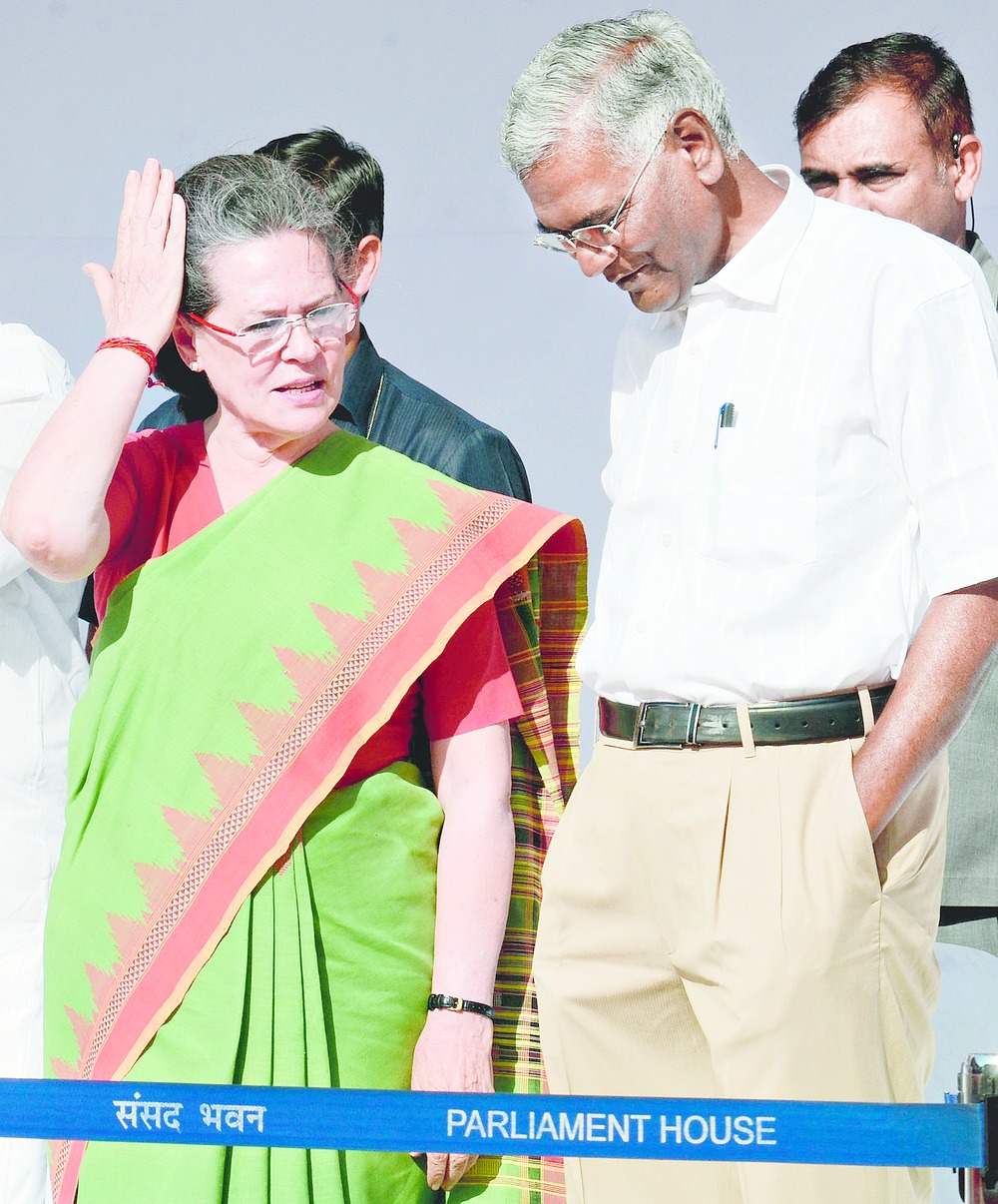
New Delhi, April 14: The government today reconstituted the board of trustees for the Indira Gandhi National Centre for the Arts, retaining just one member from the outgoing body in the new set-up.
The revamped IGNCA trust will now be headed by Hindi journalist Ram Bahadur Rai, who replaces seasoned diplomat Chinmaya Gharekhan.
At least four of the new trustees, including Rai, had sided with the government last year during the "awards wapsi" controversy that saw writers and intellectuals return honours they had received to protest "rising intolerance".
Rai had joined actor Anupam Kher's "March for India" in November to counter that protest campaign.
Gharekhan, who headed the trust for nine years, was not informed about the change of guard, which comes into effect immediately, but said the government was well within its rights to revamp the body.
"All governments have done this," he told The Telegraph, wondering why it had taken this government so long.
Rai, a Padma Shri awardee in the first round of honours announced by the Narendra Modi government in 2015, has had a long association with the Rashtriya Swayamsevak Sangh and was also associated with the JP movement.
He is considered close to RSS joint general secretary Krishna Gopal, who has a big say in the functioning of cultural institutions.
Several others who participated in that November march or spoke out in favour of the government at that point and during the recent high-pitched debates on nationalism following the JNU controversy have also made it to the trust.
Prominent among them is Odissi danseuse Sonal Mansingh, who has been an open supporter of Prime Minister Modi. She was an IGNCA trustee in the past, too, and was made chairperson of the Sangeet Natak Akademi during the Vajpayee years.
Other prominent baiters of the "awards wapsi" campaign in the IGNCA trust include painter Vasudeo Kamath and ad guru Prasoon Joshi, who was part of the team of professionals that created the "Modi brand" for the 2014 Lok Sabha elections.
In too is D.P. Sinha, a former bureaucrat who headed the BJP's cultural cell when K. Jana Krishnamurthy and Kushabhau Thakre headed the party.
Filmmaker Chandraprakash Dwivedi, who was brought into the censor board by this government but has had a couple of run-ins with chairperson Pahlaj Nihalani, also finds a place in the trust, as does art director Nitin Desai.
Desai had been engaged to design the stage for Maharashtra chief minister Devendra Fadnavis's 2014 swearing-in and also the Special Ship Museum set up at the Maritime Summit inaugurated by Modi today.
Another new face is the former top cop of undivided Andhra Pradesh, K. Aravinda Rao, author of the book How to Tell Hinduism to Your Child. The former Andhra DGP has in the past said that Rightist forces in the West had partnered with Left-wing organisations in India to spread hatred against culture in the country.
Industrialist Harsh Neotia, who has a keen interest in art; art historian Saryu Doshi; retired bureaucrat and founder-director of the premier National Institute of Fashion Technology, Rathi Vinay Jha; Delhi University Buddhist studies professor Nirmala Sharma; and former Khadi & Village Industries chairman Mahesh Chandra Sharma are some of the others who have made it to the trust.
The only member of the outgoing board who has survived the reconstitution is Padma Subrahmanyam, Bharatanatyam dancer and director of the Chennai-based dance academy, Nrithyodaya.
The term of the trust has not been specified and, according to Gharekhan, it had not been mentioned even by the previous government when he was appointed. The original deed of March 19, 1987, under which the IGNCA was set up, provided for a 10-year term for the trustees.
Rajiv Gandhi headed the trust till his death in 1991. Weeks after his assassination in May, Sonia was made "life president" by the then P.V. Narasimha Rao government of what has been billed as the country's wealthiest cultural institution.
In the Vajpayee dispensation, the IGNCA had for a brief while witnessed a strained situation after Maneka Gandhi, the estranged daughter-in-law of former Prime Minister Indira Gandhi, was made culture minister at a time Sonia was the life president. Maneka was removed from the ministry and she has always held Sonia responsible for her exit.
But Murli Manohar Joshi, then HRD minister who had been demanding that his ministry have a decisive say in matters of the trust, pushed ahead with his campaign. Rao and jurist L.M. Singhvi, both life members of the trust, eventually persuaded Sonia to step down in January 2001.











